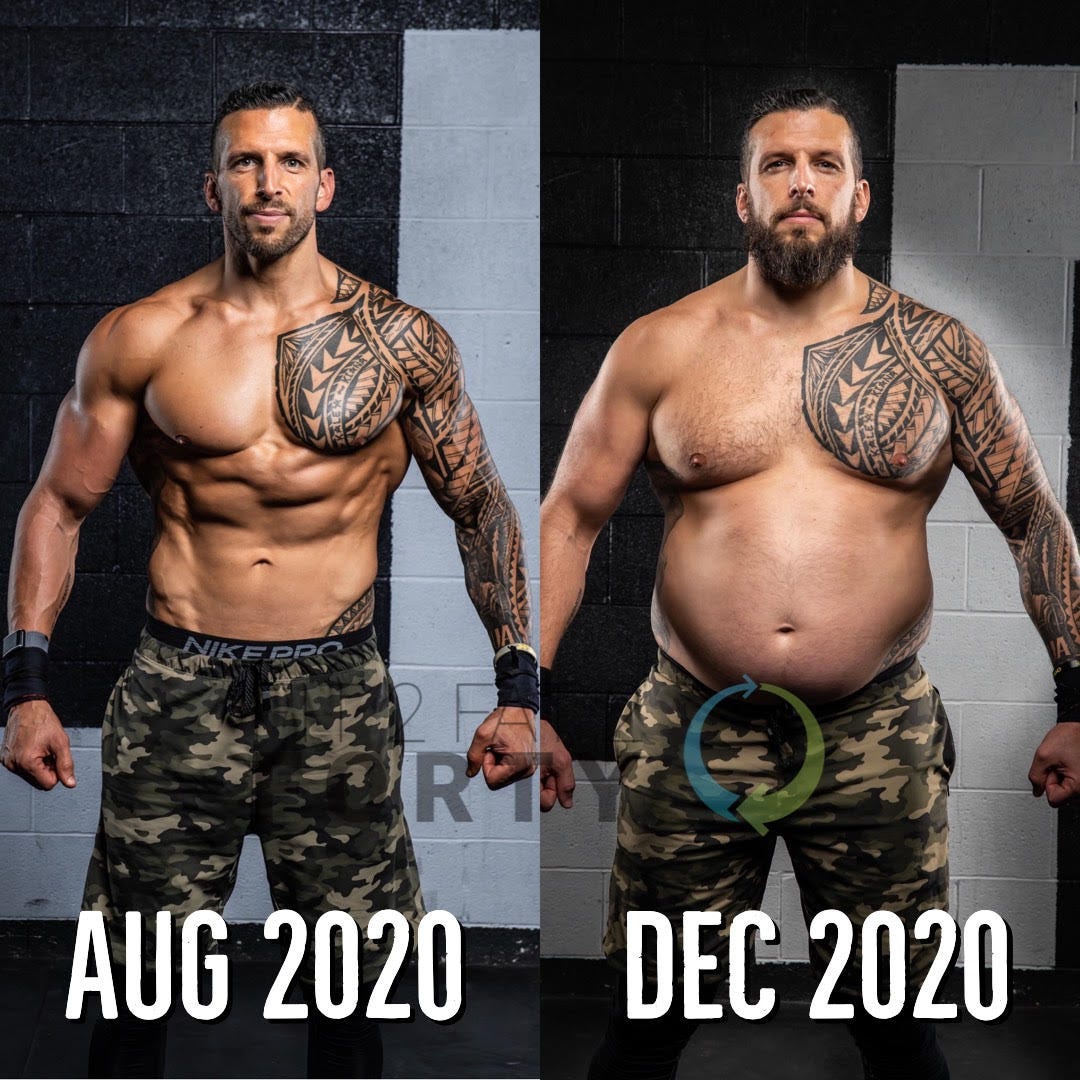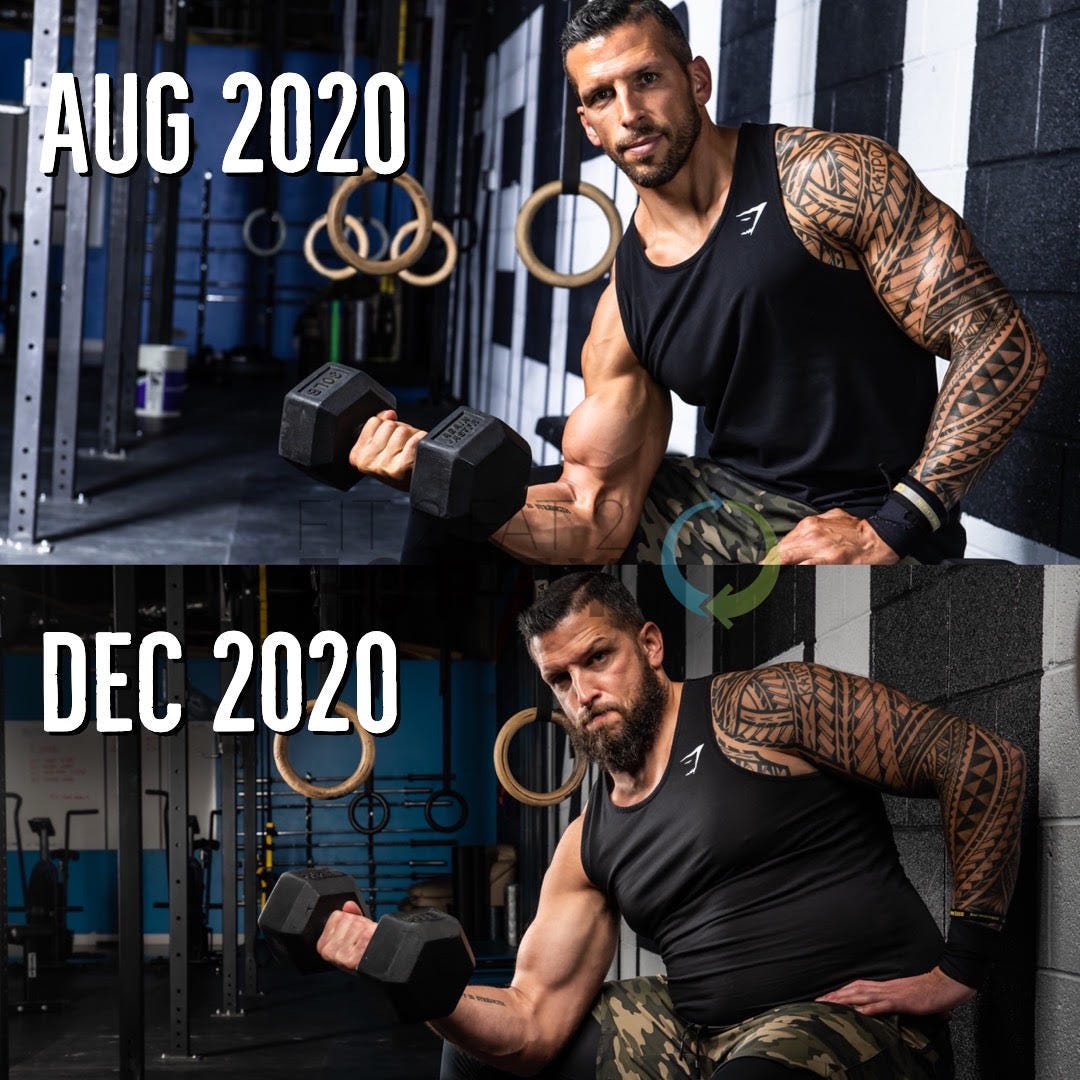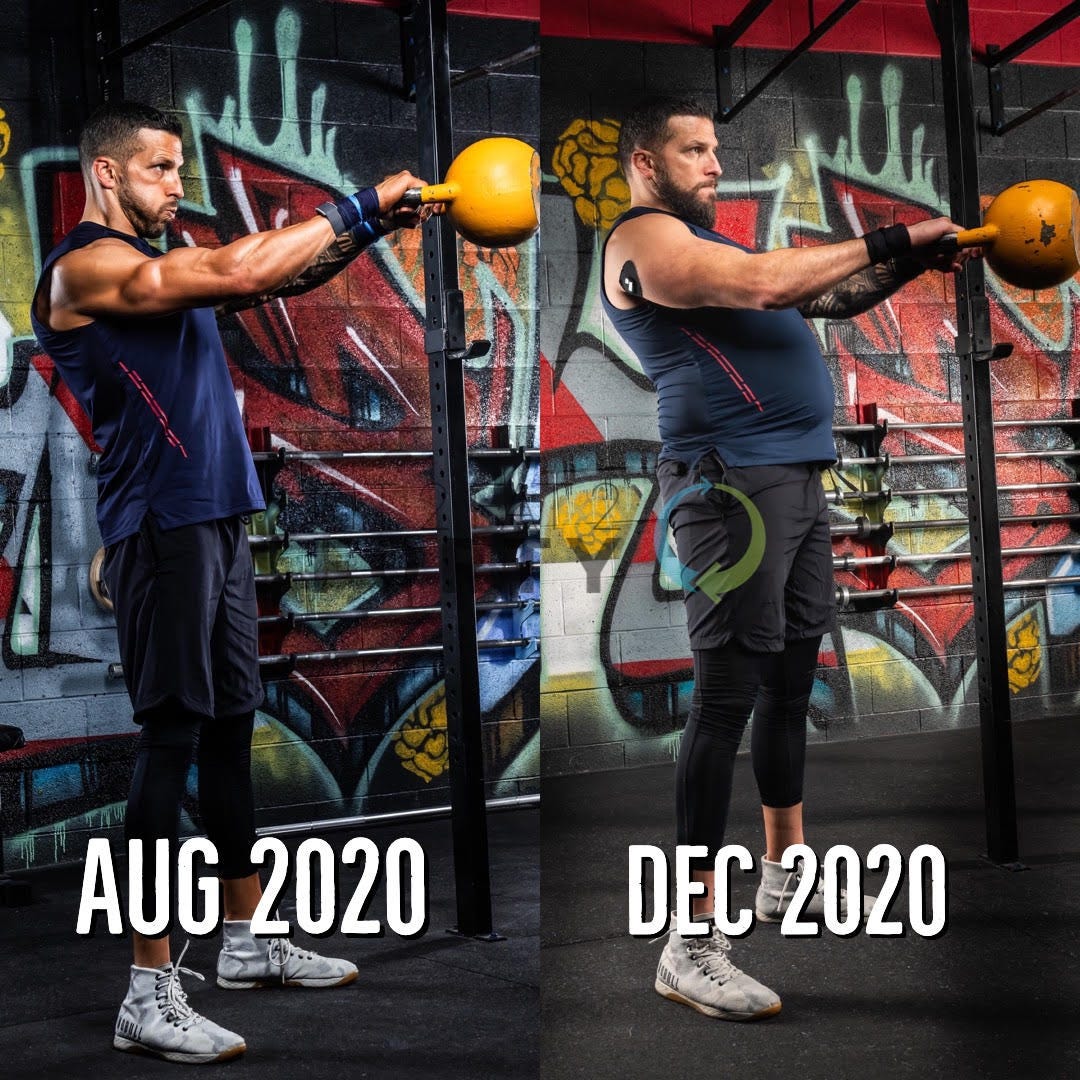
- Personal trainer Drew Manning gained more than 60 pounds to better relate to weight loss clients.
- He said the experience made him confront his own issues with body image and self-worth.
- Now he hopes to promote more empathy and a healthier attitude toward weight in the fitness industry.
- Visit Insider’s homepage for more stories.
Personal trainer Drew Manning is flipping the script on weight loss narratives.
While most before and after photos end with a much slimmer physique, Manning recently gained more than 60 pounds, significantly increasing his body fat percentage.
The goal, he said, is to then shed the pounds alongside his weight loss clients, to better understand their experience and offer more empathy as a trainer.
This is the second time he’s undergone this challenge, which he calls Fit2Fat2Fit. The first, back in 2010, went viral, and his book on the experience shot to the top of the bestseller list.
This time around, at 40 years old, Manning wants to understand the challenges that older adults can face with weight loss.
Gaining the weight himself, and now starting to lose weight alongside clients, has made him much more empathetic about how challenging and emotional changing your body can be, Manning told Insider.
"It's not as simple as willpowering your way to eating less and working out more," he said. "A typical coach has no idea how hard it is mentally and emotionally to stick to it. We like to think it's a physical transformation, but it's so much more than that."
Weight stigma can be invisible to those who don't experience it
The experience of gaining weight totally shifted Manning's perception of his own identity, and made him intensely aware of social pressures around weight.
To his surprise, his first weight gain challenge uncovered some of his own biases about weight and his own self-worth.
"I totally freaked out. I was attached to my body image as my self image. My body was my identity, I was Drew the Fit Guy," he said.
Manning said he felt a strong urge to explain the project to strangers, to make excuses for his larger body as he feared people would judge him.
As someone who had been lean his whole life, this was a new and disturbing experience for Manning.
This year, he confronted those fears head-on. He went to Hawaii and took his shirt off in public during his peak weight gain phase.
"I wasn't comfortable, exactly, but I was more accepting of myself," he said.

Weight loss can get harder over time
Manning said that, while managing his body image was easier the second time around, he faced some new challenges.
"I was truly humbled. It was harder in so many ways because I'm at a different place," Manning said.
For one thing, he went through a break-up partway through his weight gain phase, which made his experience with eating much more personal.
"I went from eating just to gain weight to eating to comfort myself," he said. "My eyes were opened to the power of emotional eating, and I have so much more empathy from people who get stuck in that."
Read more: 'Intuitive eating' is on the rise, and experts say it's because people are fed up with diet culture
Even more challenging was trying to cut back on the comfort foods he had learned to rely on when he shifted into his weight loss phase.
"The first two weeks of going back to eating healthy was incredibly hard," Manning said. "Before, I used give my clients a meal plan, and I'd have no idea why they couldn't just be consistent with it. Having experienced that, I understand so much better how hard it can be."
In nutrition science, there's good evidence that most weight loss diets don't work, particularly in the long-term. People may lose weight temporarily on strict diets, but over time, it's incredibly difficult to maintain. Often, dieters will end up indulging more in prohibited foods, gaining back the weight (and even more) before trying to restrict again, a phenomenon known as yo-yo dieting.

The fitness industry is fraught with body image issues
Manning said the experience has helped him become a better personal trainer by making him more relatable to clients, and better able to understand their perspective.
He said it also highlights how the fitness industry misrepresents what being athletic looks like. Instagram, for example, is filled with images of models with extremely low body fat, promising quick results or an easy path to slimness.
"Society tells you that if you look good and have a good looking body, you're the authority. We have to have a shift in what we think healthy looks like," Manning said.
As a fitness industry expert himself, Manning has gotten some pushback for the project on social media, mainly from people he thinks have misunderstood the goal. Critics have said the project might perpetuate shame or stigma around weight. They worry it promotes a "no excuses" attitude toward weight loss, since Manning makes it look deceptively easy.
But Manning said his point is exactly the opposite. No matter how it looks, weight loss is incredibly challenging even with his advantages of expertise and extra muscle mass.
"One of thing I'm honest about is that it is different for me. What I did in four months, that's something people might do in four years," Manning said.
Manning has just begun the process of losing the weight again, through both exercise and a low-carb, high-fat ketogenic diet. So far, many of his social media followers and online program clients have said can see themselves in his journey.
He hopes his story will resonate with people not (just) for the striking before-and-after pictures of his physical transformation, but for the mental and emotional process he's shared.
"We are all more than our bodies and we have more to offer than our bodies, and healthy isn't necessarily super lean or super skinny," Manning said.